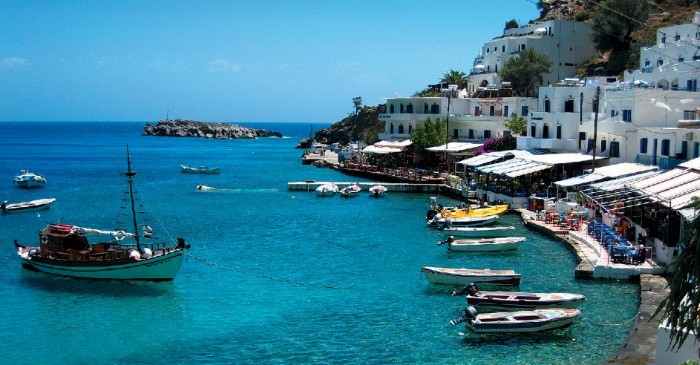
“And you won’t get to see the Olympic Torch Relay in Corfu or Crete”. So says Rupert Grint, aka Ron Weasley, in this year’s promotion video by the English Tourist Board. It appears the scriptwriters didn’t do even the most basic research before putting their £5 million campaign together, as the Olympic Torch Relay duly passed through several places on the island of Crete on May 11th.
Traditionally the torch is lit in ancient Olympia, where a priestess offers a prayer to Apollo before lighting the torch using rays of sunlight caught in a reflector. The flame then tours many of the islands and mainland provinces of Greece before being handed to the host nation at a ceremony amid the dramatic stones of the Acropolis. The traditions and legends of Greece form an essential part of the Olympic rituals. At a time when many see the Olympic brand as becoming tarnished by rampant commercialism this link to ancient Greece is perhaps more important to hold on to than ever.
That the torch should come to Crete is only fitting. This was after all the heartland of the Minoan people, one of the most advanced civilisations in the ancient world. It was here that trading was used as a novel alternative to all-out warfare, bringing prosperity and a quality of life that few other places enjoyed at that time. Sporting battles were part of the Minoan culture and young men would have sparred with weapons around 1000 years before the first games took place in Olympia.
It was no surprise that the Olympic Torch Relay passed through Knossos, once home to the palace of King Minos and under which the feared Minotaur lived and gobbled up his human sacrifices. It was here that the Athenian prince Theseus took on and defeated the Minotaur to win the affections of the King’s daughter Ariadne.
The Olympic flame also passed briefly through Chania, well known to many international visitors for its beautiful Venetian harbour. The port of Chania was important in Minoan times and even before. Being the best natural harbour on the west of the island it was the main arrival and departure point for vessels travelling going to Athens and even further to Italy. It is no wonder that Chania has been occupied and ransacked by many invading forces over the centuries, most recently by the German occupying forces during the Second World War.
Crete has proudly welcomed the Olympic Torch onto its shores in 2012 and the people of the island will no doubt offer their traditional warm welcome to many thousands of British holidaymakers. Those visiting Crete need not worry about missing out on culture, fine food and great beaches. Whatever the English Tourist Board video suggests these are all here and can be enjoyed alongside the bonus of almost guaranteed warm sunshine – now they didn’t mention that, did they?





Fed up with it all which is why I’m off to Samos